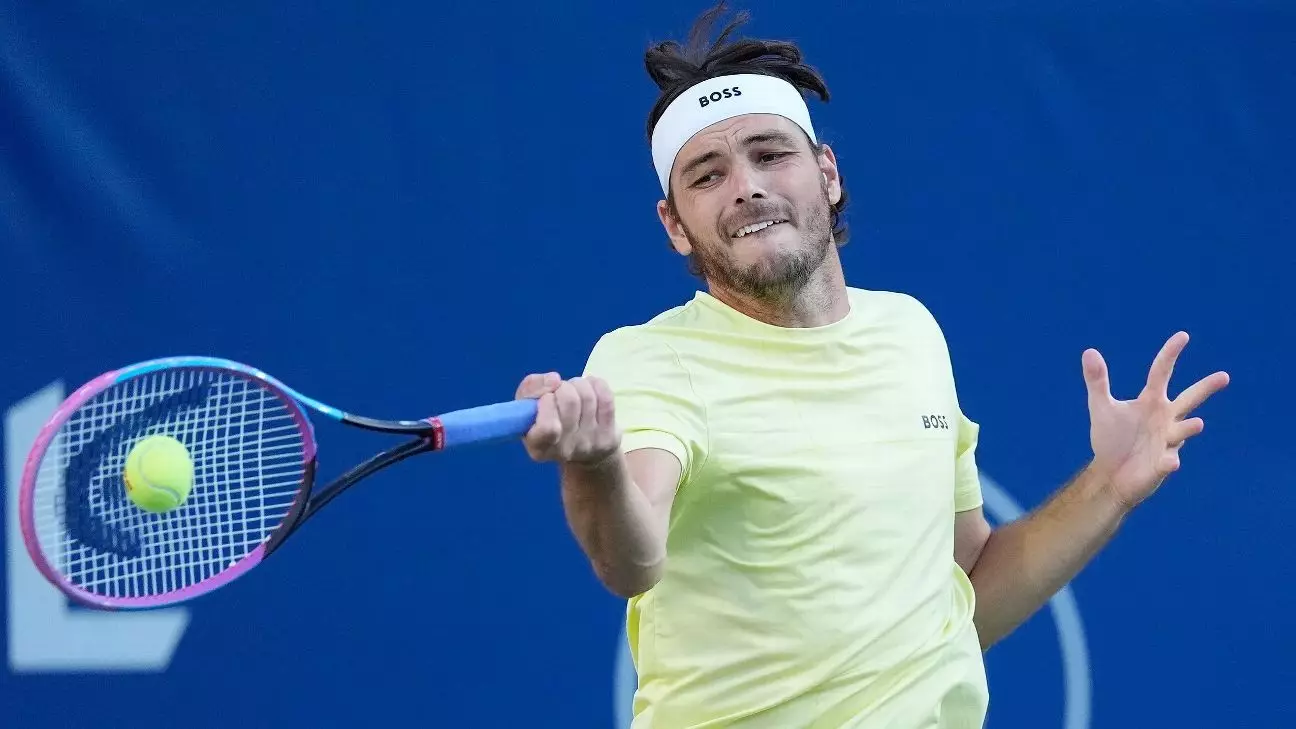In the fiercely competitive world of professional tennis, victory often hinges on much more than raw talent. Players like Taylor Fritz exemplify the importance of mental resilience and strategic adaptability. Fritz’s recent win against towering Canadian Gabriel Diallo underscores this point: despite being the favorite and playing in front of a supportive crowd, he maintained focus and showcased superior tactical patience. His remark about the crowd’s kindness reveals a seasoned player who understands the importance of channeling external pressures into internal strength. His confidence demonstrates that resilience is cultivated through experience—turning potentially hostile environments into opportunities for dominance. The ability to stay composed and strike with precision, especially on fast hard courts, is what distinguishes true champions from mere contenders.
The Power Dynamics of Competition and Personal Growth
Fritz’s upcoming match against the rising Czech star Jiri Lehecka promises to be a test of adaptability and growth. Lehecka’s victory over Arthur Fils reflects the unpredictable nature of tennis, where young players are increasingly challenging established names. It’s a testament to the evolving landscape of the sport, where mental agility, technical skill, and physical endurance are intertwined. Meanwhile, most of the top-ranked players, including the reigning champion Jannik Sinner and world No. 2 Carlos Alcaraz, opting out of this tournament, signals a new era of strategic scheduling—prioritizing peak condition and injury management over sheer participation. This shift emphasizes that modern players view resilience not only on court but also in managing their careers sustainably.
The Underdogs and the Breaking of Stereotypes
In the tournament’s intense moments, American Ben Shelton demonstrated that grit can triumph over experience. His nerve-wracking victory against Brandon Nakashima in a final-set tiebreak emphasizes that mental toughness often outlasts physical stamina. Shelton’s upcoming duel with Flavio Cobolli of Italy is a reminder that every match opens doors for unexpected heroes to emerge. Similarly, Andrey Rublev’s victory over Lorenzo Sonego reflects a renewed confidence; his statement about playing more aggressively underscores that adapting to challenges head-on is a hallmark of athletic growth. These moments collectively challenge the conventional narrative that only the highest seeds are destined for greatness—they prove that resilience, in its purest form, is the true currency of tennis excellence.
The Larger Implication: Embracing Challenges to Cultivate Greatness
This tournament exemplifies a broader truth: in the face of absence—whether it’s top-ranked players skipping the event or unforeseen setbacks—there exists a fertile ground for emerging champions. The current landscape encourages players to embrace adversity, deepen their mental toughness, and refine their tactical approach. Every match, every rally becomes a psychological battleground where resilience is forged. To succeed at the highest levels, athletes must recognize that setbacks are not end points but opportunities for growth. The players who capitalize on these moments are often the ones who will redefine the sport, inspiring future generations to pursue greatness not just through skill but through unwavering spirit and resolve.

